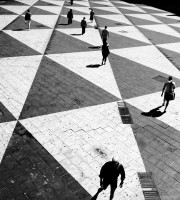„There is a forgotten history that secular Europeans, proud of having outgrown a religious past from which they feel liberated, would prefer not to remember. “Religious” issues serve as irritants to secular Europeans precisely because they serve to fuel the “glimmering embers” of Christianity, while at the same time confirming the widely shared secularist assumption that it is best to banish religion from public sphere in order to tame the passionate conflicts and irrational attitudes which religion is assumed to bring into politics.
Any public recognition of the Christian heritage or of the living religious traditions of contemporary Europeans, is assumed, would make liberal political coexistence and pluralist toleration in a united Europe nearly impossible. Rather than recognizing the “really existing” religious and secular pluralisms and the multiple European modernities, the dominant discourses in Europe prefer to hold on to the idea of a single secular modernity, emerging out of the Enlightenment. Only secular neutrality is supposed to guarantee liberal tolerance and pluralist multicultural recognition in an expanded European Union.
Thus, the secularist paradox, that in the name of freedom, individual autonomy, tolerance, and cultural pluralism, religious people – Christians, Jewish and Muslim – are being asked to keep their religious beliefs, identities, and norms “private”, so that they do not disturb the project of a modern, secular, enlightened Europe”.
(José Casanova, Religion, European secular identities and European integration, p. 66)
